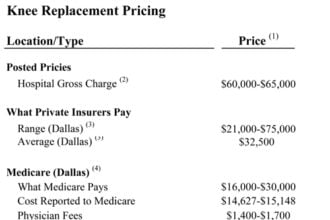According to security guidelines established by HIPAA (the Health Insurance Portability & Accountability Act), it’s not only covered entities—that’s those who provide treatment, payment, and operations in healthcare—but also their business associates—that’s anyone who develops mHealth, eHealth, or wearable applications that deal with Protected Health Information (PHI)—who are required to meet national standards for Physical, Administrative, and Technical security of health information.
When it comes to keeping protected data secure, there’s no denying that apps that will be transmitting, storing, or managing PHI should be using HIPAA compliant hosting. But what does it mean for a hosting provider to be HIPAA compliant? And, more importantly, does using HIPAA compliant hosting guarantee the app itself will be HIPAA compliant?
The HIPAA Security Rule calls for the following three safeguards to be met in order to be in compliance.
- Administrative Safeguards
- Technical Safeguards
- Physical Safeguards
Typically, HIPAA hosting only meets the Physical Safeguard requirements, meaning HIPAA hosting alone does not make your app HIPAA compliant.
All hosting providers who handle HIPAA protected data are required to sign a Business Associate Agreement which ensures that service providers use, safeguard, and disclose personally identifiable patient information properly.
Furthermore, HIPAA compliant hosting providers must implement the Physical Safeguard Requirements dictated by the HIPAA security rule, including:
- Workstation Use — They have policies and procedures that specify the proper functions to be performed, the manner in which those functions are to be performed, and the physical attributes of the surroundings of a specific workstation or class of workstation that can access ePHI.
- Workstation Security — They implement physical safeguards for all workstations that access ePHI and the hardware or electronic media on which it is stored.
- PHI Disposal — They implement policies and procedures that address the ultimate disposal of ePHI and the hardware or electronic media on which it is stored.
- Media Re-Use — They follow procedures for removal of ePHI from electronic media before the media are made available for re-use.
Required specifications like the ones above must be implemented by each and every company that deals with HIPAA information. In addition to the above specifications, however, there is also a list of addressable HIPAA specifications, which must be implemented if it is reasonable and appropriate to do so.
Addressable specifications include:
- Accountability — They maintain a record of the movements of hardware and electronic media and any person responsible therefore.
- Data Backup and Storage — They create a retrievable, exact copy of ePHI, when needed, before movement of equipment. Contingency Operations — They establish (and implement as needed) procedures that allow facility access in support of restoration of lost data under the disaster recovery plan and emergency mode operations plan in the event of an emergency.
- Facility Security Plan — They implement policies and procedures to safeguard the facility and the equipment therein from unauthorized physical access, tampering, and theft.
- Access Control and Validation Procedures — They implement procedures to control and validate a person’s access to facilities based on their role or function, including visitor control, and control of access to software programs for testing and revision.
- Maintenance Records — They implement policies and procedures to document repairs and modifications to the physical components of a facility which are related to security (e.g. hardware, walls, doors, and locks).
The addressable specifications are far from optional, and companies must document their choice whether or not to address them along with the logic behind it. In general, however, HIPAA hosting companies should and do implement the addressable physical specifications in addition to required physical specifications, as they are best practices that ultimately contribute to the security of sensitive data.
While there’s no question about whether app developers should use HIPAA compliant hosting, that’s just one—admittedly important and often costly—step toward ensuring that software solutions meet HIPAA requirements. In and of itself, however, HIPAA compliant hosting does not ensure HIPAA compliance of the app as a whole.
HIPAA compliant hosting only meets the Physical Safeguard requirements of HIPAA. Though these safeguards protect the security of data, including data redundancy and failure requirements, access to servers, and more, they are only a piece of the puzzle.
In addition to the Physical Safeguards discussed above, there are important Administrative and Technical Safeguard requirements that must be met as well. HIPAA hosting by definition cannot offer Administrative Safeguards, since these are dictated by the policies and procedures individual companies implements to ensure proper employee management, training, and oversight for staff who come into contact with protected health information.
As for Technical Safeguards—which include features like encryption and decryption, audit controls, emergency access procedures, and HIPAA file storage—most HIPAA hosting providers do not offer these necessary safeguards.
Nevertheless, many developers erroneously believe that using HIPAA compliant hosting automatically guarantees HIPAA compliance. This false sense of security can be dangerous as well as costly, since a single HIPAA violation can result in penalties of up to $50,000 (with an annual maximum of $1.5 million) Additional breach penalties can push violation totals far higher.
For this reason, it’s important that software is compliant to Physical as well as Technical HIPAA security requirements.
HIPAA / shutterstock







